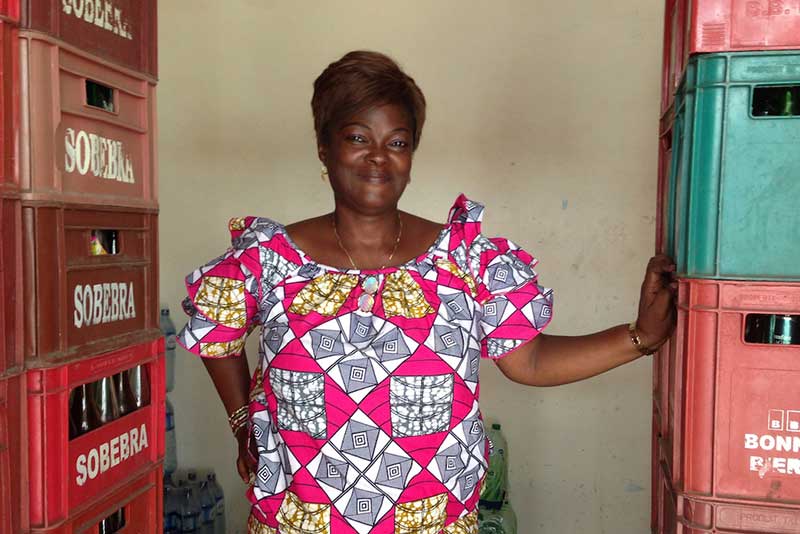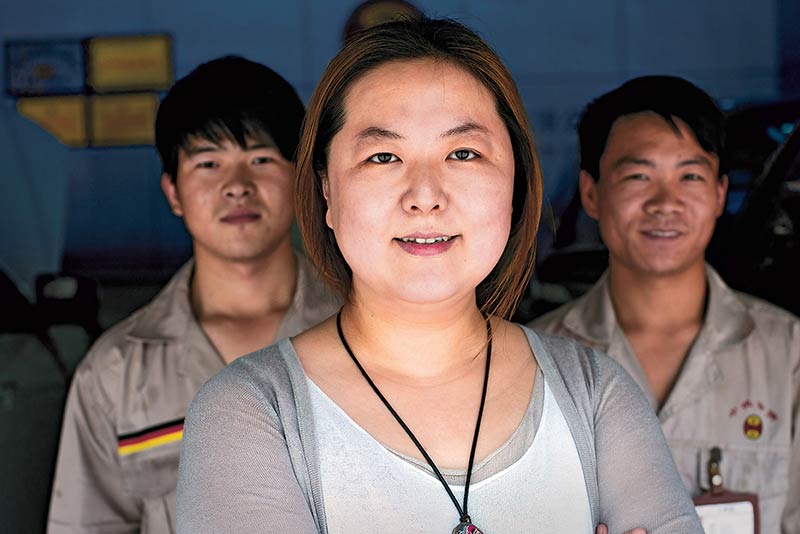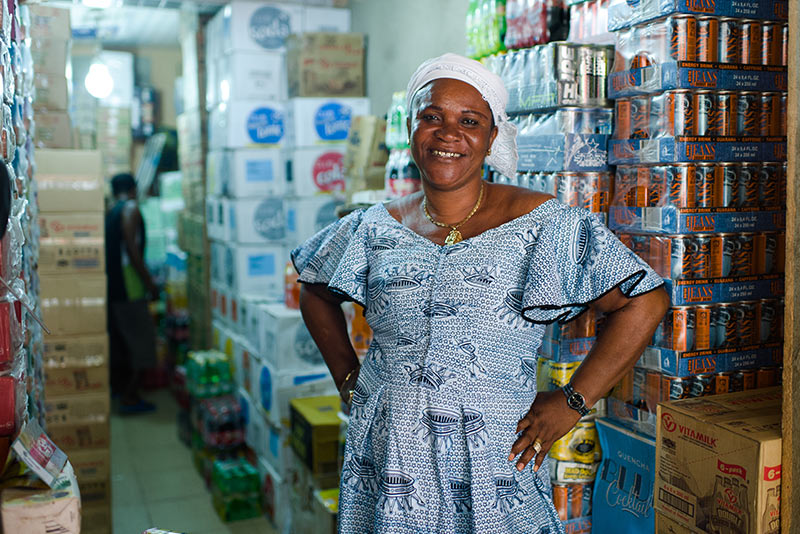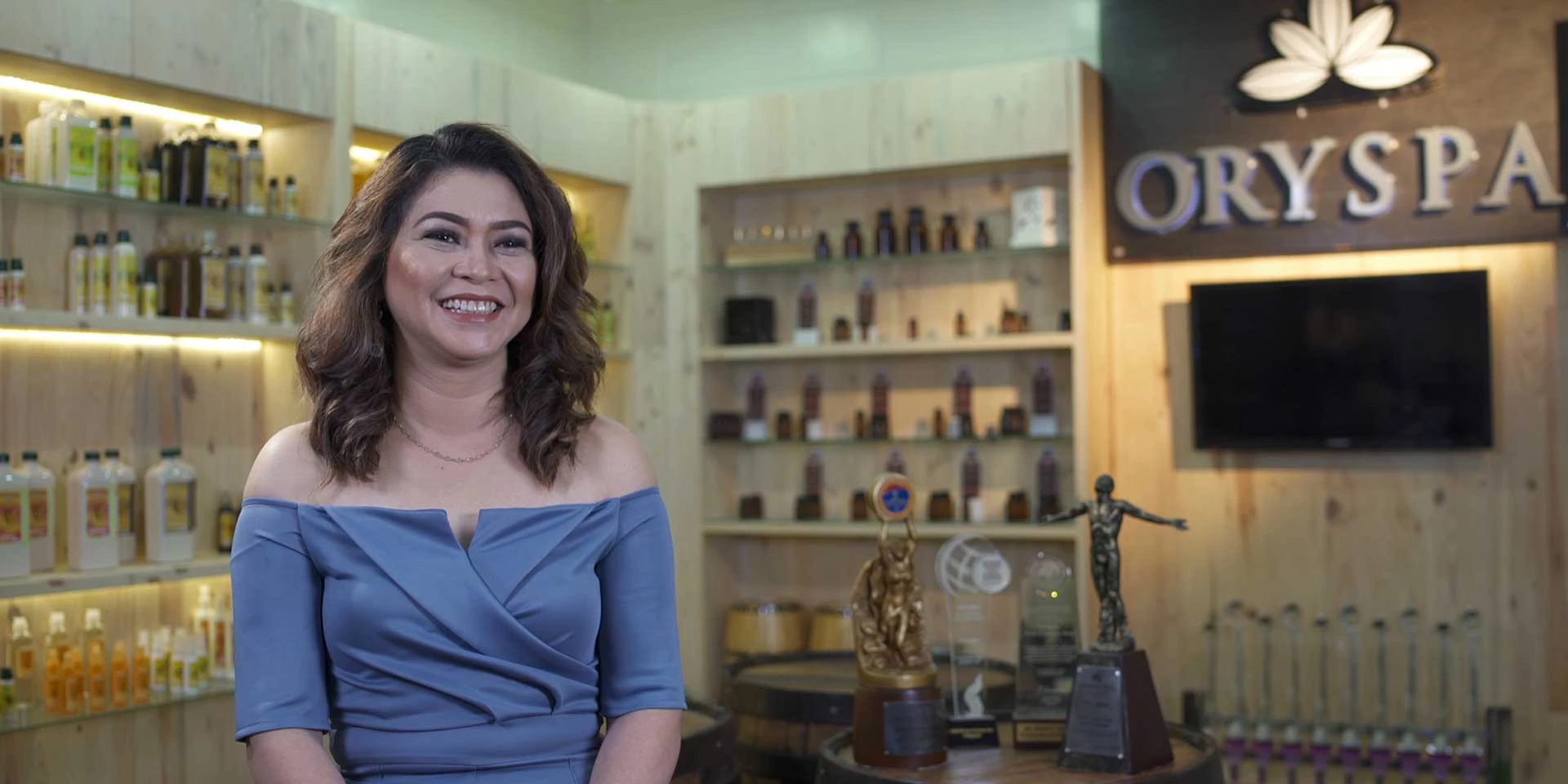By Alison Buckholtz
Women surveyed for the SheforShield: Insure Women to Protect All report, published by IFC, Accenture, and AXA Group, expressed a high level of interest in purchasing insurance policies tailored to their needs, and demand was especially strong among women who owned businesses.
Since then, companies in several countries have rolled out insurance programs for women. IFC’s guidance—with backing from Canada, Japan, and the Women Entrepreneurs Finance Initiative (We-Fi)—helped inform these solutions with support on market research, product development, and developing multi-year strategies for companies in Cameroon, Ghana, Nigeria, and the Philippines.
“The business case for creating insurance solutions for women is solid,” said Solomon Lartey, the Chief Executive Officer of Activa International Insurance Ghana (AIIG). The company launched Activ’Lady, its insurance program for women, last October. Insurers like AIIG see a market opportunity because women are now earning and owning assets more than ever. Globally, women’s incomes are expected to grow faster than men’s, and women are expected to control nearly 75 percent of discretionary spending worldwide by 2028.

Women are now earning and owning assets more than ever. Marisa Zawacki/IFC
In Ghana, the insurance penetration rate (the ratio of total insurance premiums to gross domestic product) is less than 2 percent. Therefore, market innovation and a long-term commitment are equally critical to the success of any women’s insurance program, Lartey explained. For this reason, the company spent two years studying what local women need before launching the program. AIIG’s Activ’Lady initiative, which also helps clients access financial and legal services to expand their businesses, is expected to benefit 2 million Ghanaian women, including entrepreneurs, by 2022.
In Nigeria, AXA Mansard has made progress in reaching more women. The company is close to meeting its target of 50 percent female clients, from about 36 percent in 2017. Following the publication of the SheforShield report, AXA Mansard’s parent company, AXA Group, separately launched its own women in insurance initiative to increase women’s access to insurance products and services in nine other emerging markets.
Requiring “A Spirit of Innovation”
As companies continue to test what works in the nascent women’s insurance market, they are customizing their offerings to match what women clients value. Developing such new initiatives requires “a spirit of innovation,” said Noemi G. Azura, President and Chief Executive Officer of Insular Health Care.
Insular launched its own women’s insurance program, InLife Sheroes, 10 months ago. “The business angle is what interested me the most,” recalled Azura, who is also the Program Director for InLife Sheroes. Women comprise 40 percent of the labor force in the Philippines. IFC estimates that the women’s insurance market opportunity in the country is valued at roughly $4 billion.

Insurance is critical for women-owned enterprises, which tend to be more vulnerable than those owned by men. Iwan Bagus/IFC
She also felt a moral imperative. “We hoped for a new customer segment, along with social impact,” she said. “Our company has a heritage of doing good.”
To combine the two goals, Insular introduced insurance options tied to women’s health and wellness—such as its affordable emergency-care card, which has become a best-seller. Its protections for women’s small businesses are broader than traditional insurance offerings, connecting women entrepreneurs to mentors in social and business networks. Azura called this a “holistic approach to insuring women”—one that offers solutions rather than just products.
A “Life-Saver” for Women Entrepreneurs
Insurance coverage is especially critical for women entrepreneurs, who make up an ever-increasing share of the small- and medium-sized enterprise (SME) market segment. In emerging markets, there are between 8 million and 10 million SMEs with at least one female owner, generating substantial income and driving job creation. Research shows that SMEs that are owned by women tend to be more vulnerable to natural calamities and disasters due to women’s limited access to capital, business skills, mentorship, and networks.
“This market is currently underserved by standard products in relation to accessing financial but also non-financial services in many parts of the world,” said Barbara Rambousek, Director of Gender and Economic Inclusion at the European Bank for Reconstruction and Development.
“There is therefore a strong business case for banks and other companies to develop products and offers that target this market segment,” Rambousek said. “This is not a question of optimizing CSR [corporate social responsibility] but rather to respond to a direct business interest.”

Companies’ long-term commitment is crucial in Ghana, where there’s “a cultural disinclination for insurance.” Nyani Quarmyne/IFC
Without customized insurance, women entrepreneurs may prefer to choose low-risk business strategies, but that restricts growth potential as well, according to a study from EY. Insurance can provide the safety net that allows entrepreneurs to anticipate and optimize risk, redirecting efforts and funds toward growth and sustainability.
In Ghana, for example, AIIG recently introduced a tiered insurance package that allows women entrepreneurs to protect their enterprises, home, and health, with offerings such as business liability, home protection plans, and maternity stipends.
Overcoming Behavioral Barriers
For Lartey, the CEO of AIIG, listening to local women is the most effective way to develop insurance solutions that resonate in the market.
As part of that process, AIIG trained its agents on gender sensitivity to address unconscious bias. As a result, male and female agents are more responsive to the needs of women. AIIG routinely sends these agents into communities of women entrepreneurs, so they can engage with them and provide customized solutions.
But gender-sensitivity training alone isn’t enough to boost insurance coverage in Ghana. According to Lartey, there’s “a cultural disinclination for insurance” that needs to be addressed. AIIG is now working with Ghana’s National Insurance Commission to educate citizens about how it can protect their families and enterprises. Lartey believes that these initiatives, alongside an effort from the National Insurance Commission to introduce compulsory life insurance, will change minds over time—and further expand the company’s appeal to women clients.
“As I tell my colleagues, ‘Don’t make the mistake of walking away from this opportunity,’” Lartey said. “If you go through the process patiently, you will reap the benefits.”
Published in March 2020
